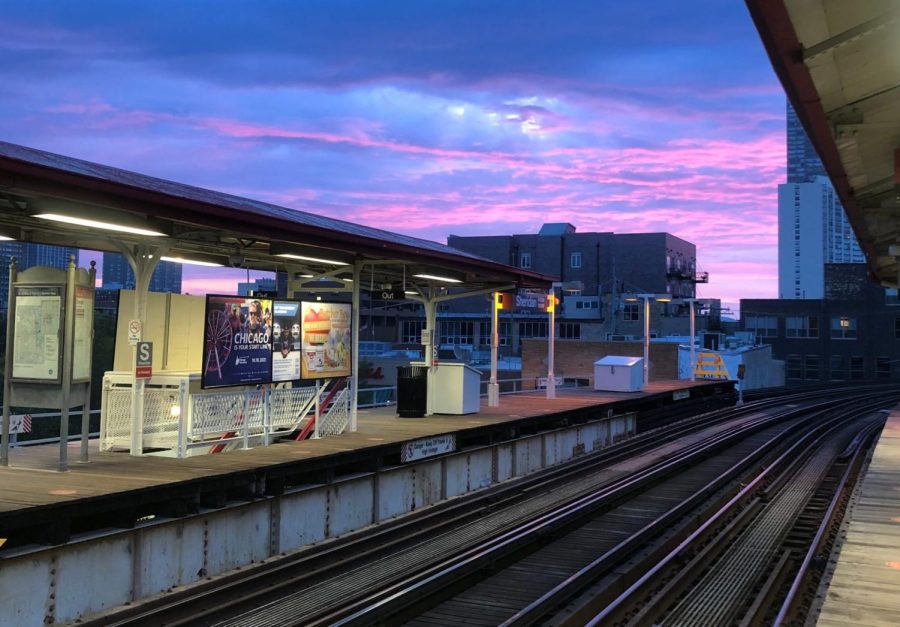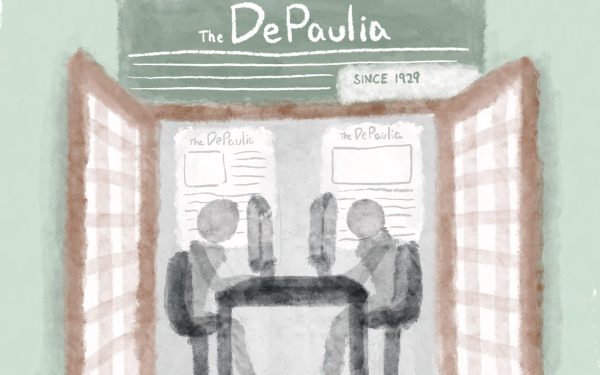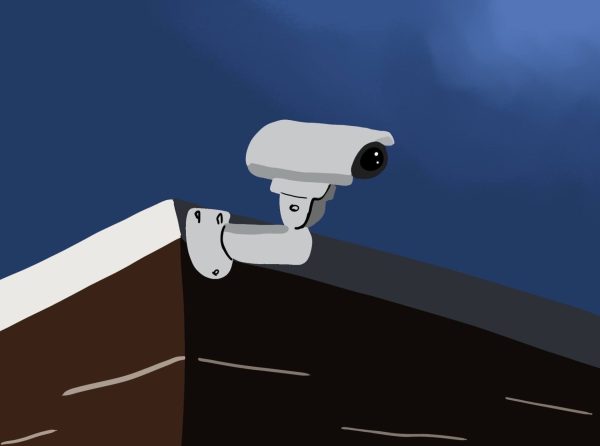OPINION: It’s time to hold the CTA accountable
The Sheridan redline station is empty on a Tuesday evening at 6 p.m. Riders have been taking the CTA less frequently due to longer wait times and inconsistent train schedules since the pandemic.
On weekdays from 8:00 a.m. to 9:00 a.m., CTA Blue Line trains are scheduled to arrive every three minutes. In my opinion, three minutes is a very reasonable amount of time to wait for a train. Only someone as chronically late as myself could not afford to wait just a few minutes on the train platform before arriving at work or school.
However, thanks to recent data published by the Commuters Take Action group, we are able to see the true state of the system. The group observed the arrival of trains from different stations across the system, and compared their observed frequency to the claimed frequencies on the official CTA schedule. I find the results to be frankly pathetic. In this window on the Blue Line during which customers are to expect a train to arrive every three minutes, trains actually arrive on average every six minutes. On Saturdays, from 10:00 a.m. to 11:00 p.m., trains are scheduled to appear every eight minutes, but in reality, only make an appearance every 22 minutes on average. We as riders deserve better.
The truth is that it has not always been this way. Before Covid-19, the CTA maintained a pretty respectable level of service. Having only moved to the city during the tail end of the pandemic, these stories of the train being the fastest option for commuting to the airport, for example, are unfortunately just tales of a bygone era for me. To better understand why the system has been so bad lately, I spoke to a longtime CTA employee who requested to remain anonymous.
“We had a lot of people who quit and retired because they weren’t vaccinated or didn’t want to deal with people who weren’t vaccinated,” the CTA employee said. “Covid hurt us really badly, and we’ve been trying to pick ourselves up over the last seven or eight months.”
The city’s administration clearly had its views when it came to Covid-19 and the vaccination. I certainly do too. Though I have been procrastinating getting my next booster shot, I am a strong proponent of the Covid-19 vaccines; however, I am not a strong proponent of the city prioritizing its own progressive agenda over the well being of the city’s transit system. I suspect the city failed to consider the long term implications of their myopic vaccine requirement, and now it is our job as riders of the CTA to bear the burden of their short sighted actions.
My source at the CTA claimed that from last year to June, the organization lost over 700 people. As any CTA customer could recite verbatim to you thanks to the incessant PA alerts, the CTA’s official stance is that “Some service may be running with delays: Staff availability is affected by COVID but we’re running as much service as possible—wait times may be longer than usual.” Notably omitted from this “special alert” is the fact that this acute shortage of bus and train operators, the main reason for the CTA’s present issues is a direct result of the CTA’s own policies.
In addition, many riders have expressed safety concerns about the CTA lately. CBS News Chicago found that “violent crime on CTA’s buses have remained largely the same the past several years, while crimes on the train have increased steadily to highs not seen since 2011.”
“You used to have two to three conductors per train on the CTA,” the CTA employee said.
He said once the CTA started running trains with just one conductor, locked away from the passengers in their own compartment, “everything went to hell”.
This inability to properly staff its trains is a massive issue for the CTA and its riders, and is certainly one that needs to be better addressed.
“Rail automation has been the worldwide way forward in terms of increasing train service,” said Brandon McFadden, a cybersecurity analyst in Chicago. “Rail automation would be great to increase consistency.”
In a city as pro-union as Chicago, it is no wonder that an organization that is an arm of the city finds itself a prisoner of these very unions.
“They won’t automate them,” the CTA employee said. “It’s a union city.”
There seems to be a theme that the city and the leadership at the CTA prioritize political agendas over actually operating an efficient transportation network. These are just a few causes of the many issues the CTA currently has, but one thing both McFaddenand the CTA employee agreed on is that the CTA lacks transparency. The true portion of CTA issues that can be attributed to staffing shortages is anyone’s guess. It is highly likely that a large portion of these problems are due not just to lack of personnel, but to poor management from the top down.
“The CTA has always been an extension of city hall… It’s where the mayor puts all her cronies… It’s a gentlemen’s club,” the CTA employee said.
It’s clear that the system has issues, and we as riders deserve better. It’s up to us to demand more. If I were to walk into Pequod’s tomorrow, craving a deep dish pizza, and I was promised a wait time of 20 minutes for my pie only to be waiting 55 minutes later with my pizza nowhere in sight, I would be quite upset. For any business, customers expect a decent level of service, especially when a certain level of service is promised to them. When a business fails to meet this level of service, customers are absolutely justified in being upset and taking their business elsewhere.
The keen readers amongst my audience here may now recall the fact that the CTA is a government entity, originally formed by the merger of several different private train lines in 1947. Since then, Chicago’s transit system has been effectively immune to these market forces that normally hold companies accountable. Given the acute lack of these market forces, it is the responsibility of the citizens of Chicago and the elected officials we elect to hold the CTA accountable. The ball is in our court.

















